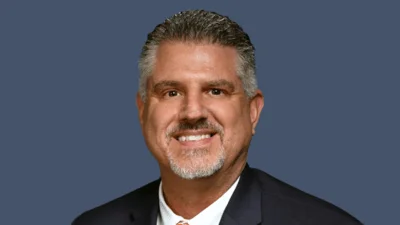Steve Cortes, CNN Political Commentator (left) & Brian BeGole, Michigan House Representative (right) | Facebook
Steve Cortes, CNN Political Commentator (left) & Brian BeGole, Michigan House Representative (right) | Facebook
House Government Operations Chair Brian BeGole recently led a hearing on the dangers of driving while impaired, highlighting bipartisan plans to provide law enforcement officers with tools to enhance road safety in Michigan.
BeGole introduced House Bill 4390, which proposes the use of oral fluid screening by law enforcement to detect controlled substances in drivers. Currently, 32 states utilize this method, and the National Transportation Safety Board (NTSB) has recommended its adoption in Michigan to address public safety concerns.
“This plan will improve roadway safety, reduce serious injuries and save lives here in our state,” said BeGole, of Antrim Township. He noted that nearly 25 percent of the 1,021 fatal crashes in Michigan in 2023 were drug-related. “One death from an impaired driver is one too many.”
NTSB board member Thomas Chapman supported BeGole’s testimony, stating that "oral fluid is a valuable, but underutilized biological specimen for detecting a driver’s drug use."
Oral fluid collection is described as non-invasive and straightforward. It can detect common drugs like cocaine and THC and soon may include fentanyl detection. “Michigan is a zero-tolerance state,” BeGole stated, emphasizing the need for comprehensive testing tools when probable cause exists.
The process involves using a sterile swab inside the mouth followed by analysis with a handheld machine within five minutes. This step follows field sobriety tests and preliminary breath testing.
Troy Meder of the Michigan State Police and Brian Swift also testified in support. Swift's parents were killed by an impaired driver in 2013, leading him to advocate for Michigan's first statewide oral fluid drug testing program initiated in 2016.
Swift expressed his dedication: “I’ve worked with many in the state to determine what was needed to help proactively curb this public health and safety crisis.”
Support for these legislative measures came from several groups including the Michigan State Police and the Michigan Sheriffs’ Association. House Bill 4390 and HB 4391 remain under consideration by the committee.


 Alerts Sign-up
Alerts Sign-up